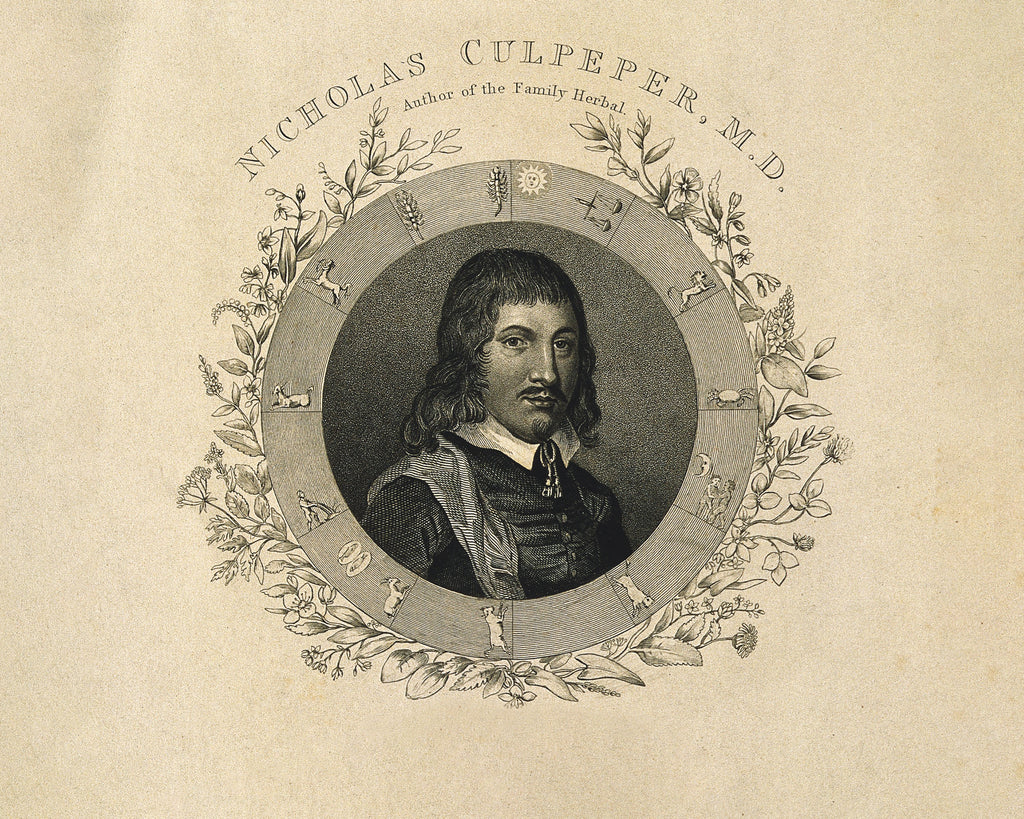Meet Nicholas Culpeper, The Bad Boy of Botany
We spend a lot of time thinking about plants. And while our list of go-to sources on the subject runs long, Culpeper’s Complete Herbal – a botanical index dating back to 1643 – remains our most frequently-visited resource. Despite being published nearly 400 years ago, the encyclopedic guide to botanicals is a treasure trove of trusted herbal wisdom.
The names of the entries alone, from Bastard Rhubarb to Field Mouse Ear Scorpion Grass, should be enough to pique your interest, but on the off chance they’re not, we decided to do a little digging into the man behind the plants: the bad boy of botany himself, Nicholas Culpeper.
Born in 1616, Nicholas Culpeper was an English botanist and astrologer who paired plants with planetary influences to treat his patients. As a child, he loved his grandfather’s collection of clocks, which spurred a deep interest in astrology and time. Through his youth and young adulthood, he obsessively read medical texts from his grandfather’s library and spent hours in the fields and forests of the English countryside cataloguing countless herbs with the intent of garnering enough knowledge to publish his findings.
Culpeper worked as an apprentice for an apothecary for seven years before getting married in 1640 to Alice Field, the heiress of an affluent grain merchant. Their courtship allowed Culpeper to establish his own pharmacy in Spitalfields, London at a time when medical facilities were sparse and faltering.
An unabashed skeptic, Culpeper constantly questioned traditional medicine, calling for a return to pharmaceuticals’ herbal origins. He vehemently shunned the medical practices of the time, once saying,
"This not being pleasing, and less profitable to me, I consulted with my two brothers, Dr. Reason and Dr. Experience, and took a voyage to visit my mother Nature, by whose advice, together with the help of Dr. Diligence, I at last obtained my desire; and, being warned by Mr. Honesty, a stranger in our days, to publish it to the world, I have done it."
He argued that “no man deserved to starve to pay an insulting, insolent physician,” and so Culpeper offered his medical services gratis.
Unlike other contemporary physicians who resisted visiting patients in person, instead relying on urine samples to diagnose and treat illness, Culpeper saw as many as 40 patients in a single morning. To him, “as much piss as the Thames might hold” was not enough to effectively identify symptoms and treat his patients with the attention and care required.
Culpeper’s herbal remedies included many botanicals, including anemone to treat leprosy, bedstraw to act as an aphrodisiac, and burdock to soothe tooth pain. Other, less esoteric ingredients were used as well – chamomile, juniper, parsley being just a few among hundreds of other botanicals.
While time has taught us that some of Culpeper’s methods – like, say, prescribing walnuts to treat neurological ailments simply because they look like miniature brains – may not be the most effective, we still believe fully in the power of plants to transform the humdum rituals of modern life. We think that’s something Culpeper could get behind, too.


